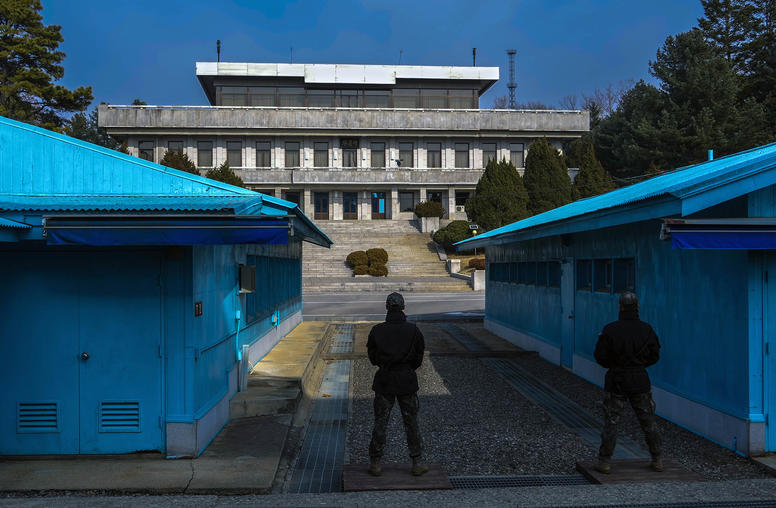Sanctioning North Korea: What are the Obstacles to Sustained Enforcement?
On behalf of Ambassador Richard Solomon, Chair of the Korea Working Group, the U.S. Institute of Peace cordially invites you to a joint CSIS-KEI-USIP public event
The UN Security Council has been working on a stringent resolution following North Korea's 2nd nuclear test on May 25. Irrespective of a reaffirmation of punitive measures listed in UN Security Council Resolution 1718 (passed in response to North Korea's Oct. 2006 nuclear test) or expanded measures in this new resolution, the key question will be enforcement. At present, a strong consensus has emerged among Washington, Tokyo, Seoul and Moscow to push forward on a tough resolution. Although Beijing has expressed its "resolute opposition" to North Korea's 2nd nuclear test, its initial response has been muted compared to how it reacted to the 1st nuclear test in Oct. 2006. Despite recent discussion in Beijing about cooperating with Washington on sanctions, it remains to be seen if Beijing will pursue symbolic gestures of enforcement or actually implement 1718-type measures in a sustained, coordinated manner this time round.
Speakers
- Victor Cha
CSIS Korea Chair, Center for Strategic & International Studies
Professor, Georgetown University
Former Asia Director, National Security Council - William Newcomb
Former Senior Economic Advisor, Office of Intelligence and Analysis, U.S. Department of the Treasury - Charles (Jack) L. Pritchard
President, Korea Economic Institute
Former Special Envoy for Negotiations with the DPRK - John S. Park, Moderator
Director, Korea Working Group, Center for Conflict Analysis and Prevention, U.S. Institute of Peace
Archived Audio
To listen to audio or to view video, please click on the links provided below. You also can right click on the links and choose "Save Target As" or "Download Linked File." This will save the file to your computer and then allow you to play it in your media player directly.
Of Related Interest
- North Korea, Inc.: Gaining Insights into North Korean Regime Stability from Recent Commercial Activities
Working Paper, May 2009 (PDF - 2.9MB) - The Real Bridge to Nowhere: China’s Foiled North Korea Strategy
Working Paper, May 2009 (PDF - 668KB) - The 2009 'New DPRK Revolutionary Upsurge'--A Blast from the Past or a New Path?
Event, February 10, 2009 (Audio Available) - The North Korean Food Crisis: What Can Be Done?
Event, May 20, 2008 - A World Without Nuclear Weapons: The International Dimension
Event, March 6, 2008 (Audio Available) - Keeping an Eye on an Unruly Neighbor: Chinese Views of Economic Reform and Stability in North Korea
Working Paper, January 2008 (PDF - 712KB) - Disabling DPRK Nuclear Facilities
Working Paper, October 2007 (PDF - 377KB) - Inside North Korea: A Joint U.S.-Chinese Dialogue
USIPeace Briefing, January 2007



